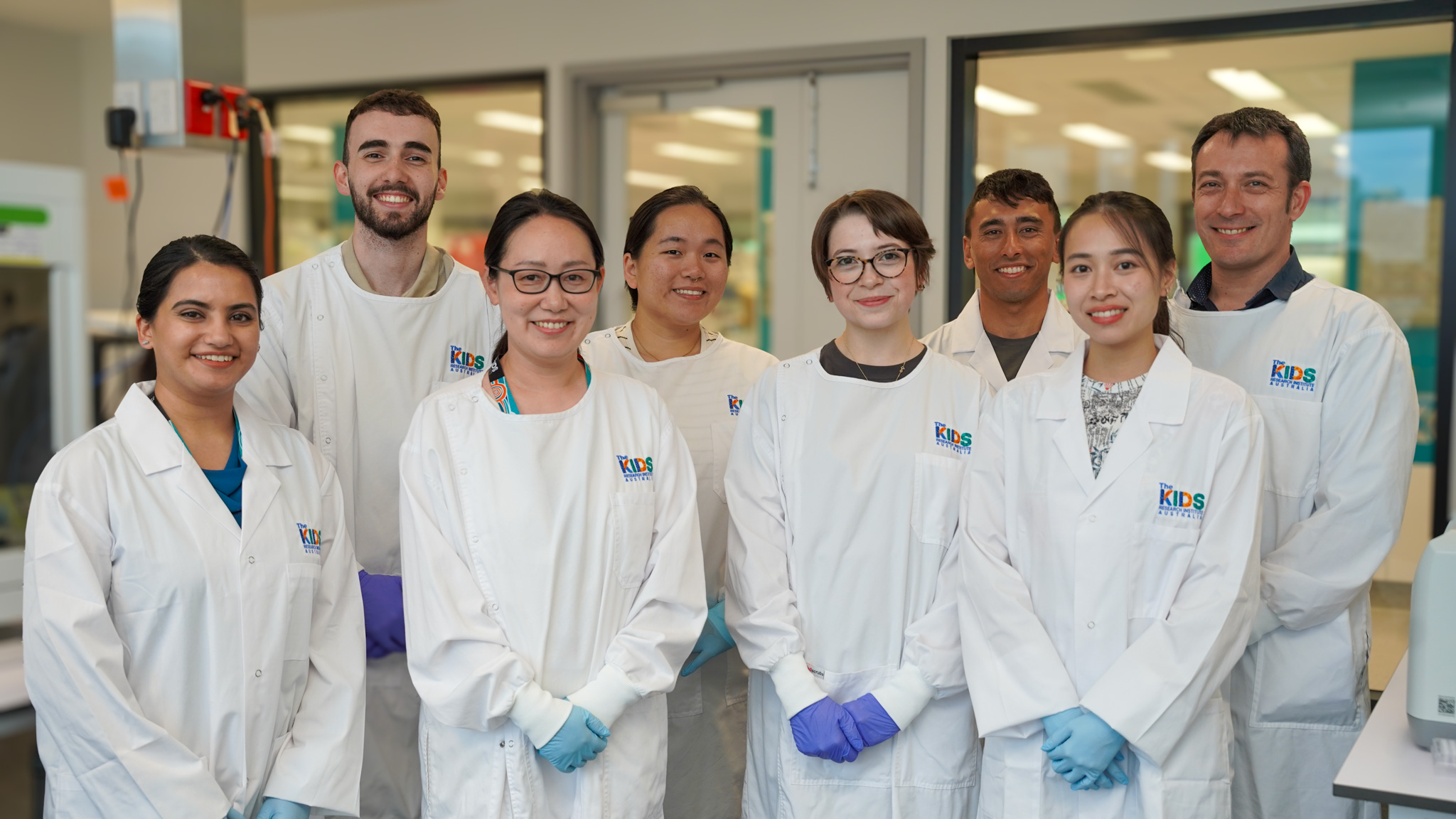Despite significant improvements in survival rates over the decades, leukaemia still remains the second cause of cancer-related death in children.
Many children with leukaemia continue to have poor prognosis due to treatment-related toxicity, therapy-resistance and relapse, and children with relapsed leukaemia are currently exposed to life-threatening conditions. New treatments are urgently needed to improve long term outcomes for these children.
Using cutting-edge technologies and innovative strategies, the main research topics of the Translational Genomics in Leukaemia team are to:
- Dissect the genetic molecular causes of leukaemia initiation and development.
- Identify the key features of treatment resistance and relapse initiation.
- Screen thousands of drugs to eradicate leukaemia cells.
- Develop clinically relevant models of leukaemia to assess efficacy of new therapies and facilitate their rapid translational to the clinic.
Our team collaborates with local, national and international leaders and clinicians to make a tangible difference in improving outcomes for children with leukaemia.
Team leader
Laboratory Head, Translational Genomics in Leukaemia, Ursula Kees Fellow (CCRF), Cancer Council WA Fellow (CCWA), Senior Research Fellow (UWA), University Associate (Curtin)
Team members (8)

Jesse Armitage
Postdoctoral Researcher

Kah Ying Wong
Research Assistant

Kunjal Panchal
PhD Student

Amelia Dyton
PhD Student

Claris Chung
Masters Student

Qi Liu
Masters Student

Petar Tupanceski
Honours Student

Carlos Aya-Bonilla
Honorary Researcher
Translational Genomics in Leukaemia projects
Featured projects
Development of new preclinical models of childhood leukaemia
Exploring clonal diversity in paediatric B-cell leukaemia to identify new therapeutic weakness


